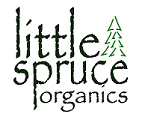Why should I buy organic cotton?
Organic is simply a healthier choice. For all of us.
It’s especially good for our babies. Do you really want your baby wearing cotton grown with aldicarb, parathion, and melthamidopho- three of the most dangerous insecticides to human health- among a plethora of other unpronounceable chemical names? After you learn more about all of the nasty chemicals involved with the production of non-organic cotton, it becomes increasingly difficult to believe that there is no chemical residue left on the final product that touches your baby’s soft, sensitive skin.
We're all affected by the damaging chemicals released through the conventional production of cotton. When you mix harmful chemical with the air we breathe, the water we drink, and the soil in which our food grows, you can imagine the results. And we’re just talking about the cultivation of the cotton. What about the rest of the process? Please, read on.
After the cotton is harvested (a process which, in conventional production, is usually done by either child labor or chemical leaf stripping agents), its fibers must be spun into fabric. In the non-organic process, a variety of synthetic additives such as spinning oils and sizing agents are used, followed by a multitude of other chemical additives- synthetic resin, petroleum scours, heavy metals, flame and soil retardants, ammonia, formaldehyde- most of which are non-felting, non-creasing, soil-repellant, or flame retardants. Do we really need all those chemicals added to our clothing to “protect” us from dirt and fire?
The madness doesn’t end there. Often, additional synthetic chemical fibers are mixed with the natural cotton fibers and further processed before the final article of clothing is sewn. All of these additives negatively affect the natural characteristics of cotton. Even more chemicals are later added to protect the garments from fungi and pests.
All right, all right- enough said. Non-organic cotton is… less than desirable, to say the least. What about organic cotton?
Picture this: a little cotton seed (not a genetically modified one, mind you) is planted and grown with a lot of love and a few natural fertilizers like manure and compost. That seed becomes a thriving plant which forms a mutually respectful relationship with the soil in which it grows. It is then hand-picked by well treated, fairly compensated workers, and its fibers are spun into yarn which is then knit or woven into soft fabric; the only additives, if any, are environmentally friendly ones such as starch or paraffin. That lovely, natural, non-chemically bleached fabric is sewn into a beautiful garment that ends up in your hands- made by nature, with love.
Last but not least...it’s good for the earth. Organic cotton production, unlike its “dirty” conventional counterpart, utilizes no synthetic agricultural fertilizers, pesticides, or herbicides. This reduces the amount of toxic chemicals released into the air, water, and soil. Organic cotton is grown with crop rotation as opposed to monoculture, and natural fertilizing methods are employed, such as manure, compost, beneficial insects, and mixed cultivation. These methods increase soil fertility and keep our drinking water clean. The earth appreciates all of this very much.
